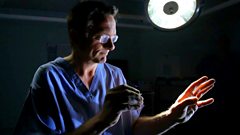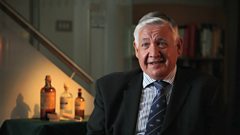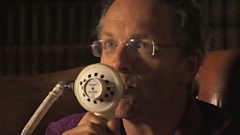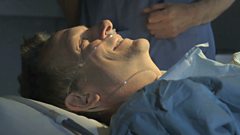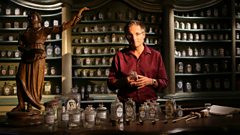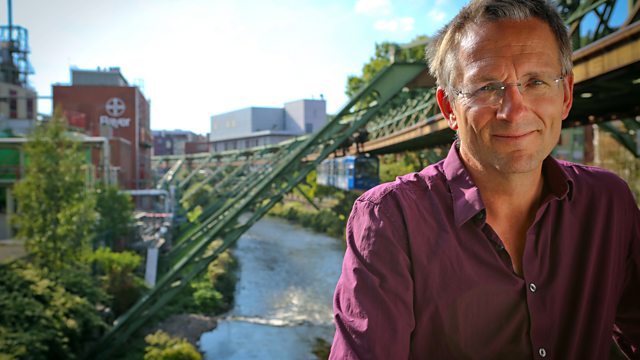
Pain
Medical history series. Michael Mosley discovers what pain is and how we were able to control it with the discovery of morphine at the beginning of the 19th century.
Pain has a profound effect on our bodies - when we are experiencing it, millions of nerve cells deep within our brains are firing, telling us 'it hurts' - and for centuries the challenge has been to find something that will lessen or even switch off these sensations to bring us relief. Dr Michael Mosley discovers just what pain is, why we want to control it and how we ultimately did it when the discovery of morphine, the world's first pharmaceutical, at the beginning of the 19th century led to a 200-year journey of scientific breakthrough, discovery and self-experimentation.
Last on
More episodes
Previous
You are at the first episode
Next
See all episodes from Pain, Pus and Poison: The Search for Modern Medicines
Clips
-
![]()
Michael Mosley puts a needle through his hand
Duration: 01:34
-
![]()
Dr David Wilkinson tells the gruesome history of anaesthesia
Duration: 07:15
-
![]()
Michael Mosley tries laughing gas
Duration: 02:41
-
![]()
Michael Mosley takes the truth drug thiopental
Duration: 04:56
Credits
| Role | Contributor |
|---|---|
| Presenter | Michael Mosley |
| Producer | Alex Freeman |
| Director | Alex Freeman |
| Series Producer | Steve Crabtree |
| Executive Producer | Tina Fletcher-Hill |
Broadcasts
- Thu 3 Oct 2013 21:00
- Fri 4 Oct 2013 03:00
- Tue 8 Oct 2013 22:00
- Sat 25 Jan 2014 20:00
- Sun 26 Jan 2014 02:40
- Wed 29 Jan 2014 00:00
- Thu 19 Feb 2015 20:00
- Tue 20 Sep 2016 22:00
- Mon 12 Jun 2017 20:00
- Tue 13 Jun 2017 01:30
- Thu 24 May 2018 23:00
- Thu 17 Oct 2019 23:00
 Mon 20 Apr 2020 16:00Red Button One
Mon 20 Apr 2020 16:00Red Button One Tue 21 Apr 2020 16:00Red Button One
Tue 21 Apr 2020 16:00Red Button One- Tue 21 Apr 2020 20:00
- Wed 22 Apr 2020 02:30
 Wed 22 Apr 2020 18:00Red Button One
Wed 22 Apr 2020 18:00Red Button One Thu 23 Apr 2020 16:00Red Button One
Thu 23 Apr 2020 16:00Red Button One Fri 24 Apr 2020 17:00Red Button One
Fri 24 Apr 2020 17:00Red Button One- Wed 19 May 2021 00:00
Featured in...
![]()
Bitesize on BBC Four
Programmes to support the GCSE and A-Level curriculums to feed the brains of students.
![]()
Pain, Pus and Poison
Michael Mosley tells the story of the creation of our most useful and valuable drugs.
